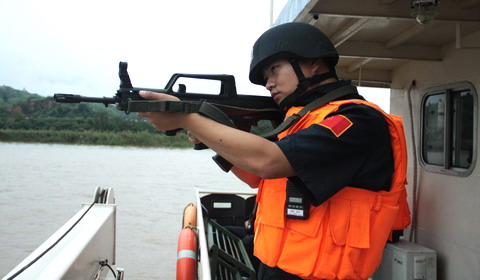Testing time for China's tea growers
Updated: 2013-12-02 00:08
By Todd Balazovic and Li Aaoxue (China Daily)
|
|||||||||||
Quality issues
Limited supply chains and tough customs inspections are the major roadblocks for Chinese high-end tea growers who have their eyes on shifting their products abroad.
Gao Cheng, managing director at Heimeiren Tea Ltd Co, says while his teas might meet the quality standards in China, often stringent policies in Europe and the US prevent shipments from ever leaving the country.
"But with enough people in China demanding our products, there's no real need to ship outside China."
At the beginning of the year, Japanese food producer Ito En recalled more than 400,000 packages of China-produced Oolong tea after it failed to meet the nation's pesticide residue standards.
Incidents like these hurt the international reputation of Chinese tea, says Chris Yang Hanjun, CEO and founder of international online tea distributor TeaVivre.
"We think this is the top reason that has so far inhibited the development of Chinese tea in the international market," he says.
Yang, who started TeaVivre in 2010 after noticing there were no famous international tea companies specifically branding Chinese tea, says that for someone trying to establish a name, ensuring quality is the biggest barrier.
In addition to inviting closer scrutiny from customs officials, it pushes tea aficionados to look elsewhere to get their fix. Yang says he tests the tea quality several times before putting it on offer, something that many mass producers often overlook, because it means the difference between success and failure.
"The premise of much of our testing is that the tea meets the low pesticide residue requirements in the US and Europe," he says. "It is the most important factor."
But Yang reiterates that creating a culture that looks to appreciate tea, viewing it beyond just a convenient afternoon pick-me-up, is crucial to creating the demand that will have Chinese producers ensuring their products meet international shipment standards.
This was the precise aim of Chas Kroll when he initiated the American Tea Masters Association in 2007.
Having spent more than a decade sourcing specialty teas from Johannesburg to Jiangxi, Kroll identified the need for the training and education of tea masters in the US.
"At the time there was only one organization in the US that was doing any training — and looking at their curriculum it was really inadequate," he says.
Kroll applied his expertise of tea tasting acquired from his years as a supplier and many similar techniques found in wine tasting, to create a curriculum that certifies enthusiasts as tea masters.
So far, Kroll has certified more than 300 people internationally — from Germany, to Australia and the US — as qualified American Tea Masters. With certification costing $2,975, it may be a while before any but the most ardent tea lovers partake — but for Kroll that's a good thing.
"We really are aiming to work with people who are willing to dedicate a good amount of time in appreciating good teas," he says.
"As a tea master, it's not just about getting certified. It's about the ongoing process of pursuing knowledge about tea."
While American Tea Masters may become certified in a matter of months, Li of Li Liang Xia tea, who spent years studying the complexities of the tea leaf says the process is not so simple.
"We cannot simply say let's promote Chinese tea to the world, because it is a culture; it is not something that can be easily learned by foreigners," he says.
"Even for Chinese people, it takes five or six years for them to understand the intricacies of tea culture.
"But we could use tea as a platform, to let more foreigners understand Chinese culture."
Until then, growers like Li are happy to continue selling to the domestic market, where Chinese buyers, appreciating the cultural heritage of the product they're buying, are willing to spend more money.
Related Stories
Time for tea 2013-11-29 14:44
More should be done to spread tea aroma 2013-11-29 14:44
Fuding savors success in white tea 2013-11-15 09:13
How to make white tea 2013-11-15 07:41
China Int'l Tea Expo kicks off in S China's Nanning 2013-11-11 14:39
Qingdao Autumn Tea Fair kicks off 2013-11-07 10:56
Today's Top News
China outlines diplomatic priorities for 2014
Continuity in DPRK expected
Austria's new government sworn in
Putin's dream of rejuvenation
Shoppers dropping department stores
China's growth to help markets
Clashes with US can be avoided: FM
Kerry offers Hanoi aid in maritime dispute
Hot Topics
Lunar probe , China growth forecasts, Emission rules get tougher, China seen through 'colored lens', International board,
Editor's Picks

|

|

|

|

|

|





